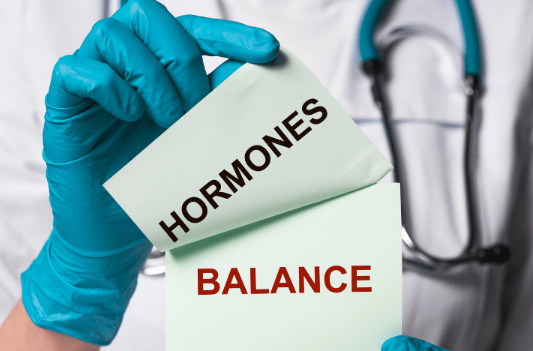Achieving Balanced Hormone Health: A Comprehensive Guide

Understanding Hormonal Balance and Its Importance
Hormonal balance is a critical component of overall health, impacting numerous bodily functions, including metabolism, reproduction, mood regulation, and energy levels. Hormones act as chemical messengers, orchestrating communication between different organs and systems. When hormone levels fluctuate, it can lead to various health concerns such as fatigue, weight gain, mood swings, and reproductive issues. Understanding the role of hormones and maintaining their equilibrium is essential for sustaining physical and emotional well-being. A deeper look into the hormonal system can help individuals identify early signs of imbalance and seek timely interventions.
Common Causes of Hormonal Imbalance
Several factors contribute to hormonal imbalance, ranging from lifestyle habits to underlying health conditions. Poor diet, lack of exercise, high stress levels, and inadequate sleep often disrupt hormone production and regulation. Environmental toxins and chemicals in household products can also interfere with endocrine function. Additionally, age-related changes, such as menopause or andropause, naturally alter hormone levels. Medical conditions like thyroid disorders, polycystic ovary syndrome (PCOS), and adrenal fatigue further exacerbate hormonal imbalances. Identifying the root cause is the first step toward effective treatment and management.
Natural Methods to Support Hormonal Balance
Maintaining balanced hormone health often involves lifestyle changes that promote hormonal harmony. A nutrient-dense diet rich in healthy fats, lean proteins, and fiber helps regulate insulin and cortisol levels. Incorporating foods like avocados, nuts, seeds, and leafy greens provides essential vitamins and minerals necessary for hormone production. Regular physical activity, particularly strength training and yoga, can enhance metabolic function and reduce stress. Prioritizing quality sleep and practicing stress-relief techniques, such as meditation and deep breathing exercises, also support hormonal stability. Avoiding toxins in personal care and cleaning products reduces exposure to endocrine disruptors.
Medical Treatments and Therapies for Hormonal Health
For individuals experiencing severe hormonal imbalances, medical treatments and therapies can offer significant relief. Hormone replacement therapy (HRT) is a common solution for managing symptoms of menopause and andropause. Bioidentical hormones, derived from natural sources, are increasingly popular due to their compatibility with the body’s natural hormones. Additionally, medications targeting thyroid disorders, insulin resistance, or reproductive issues are prescribed based on specific needs. Regular consultations with endocrinologists or hormone specialists ensure personalized treatment plans that monitor hormone levels and optimize health outcomes.
The Long-Term Benefits of Balanced Hormones
Achieving and maintaining balanced hormones offers long-term health benefits, including improved energy levels, enhanced mental clarity, and better weight management. Hormonal balance supports reproductive health, reduces the risk of chronic diseases, and promotes emotional stability. It also slows the aging process, contributing to healthier skin, hair, and bones. By prioritizing hormonal health through a combination of natural methods and medical interventions, individuals can experience improved quality of life. Consistent efforts to sustain hormonal harmony pave the way for holistic well-being and longevity.







